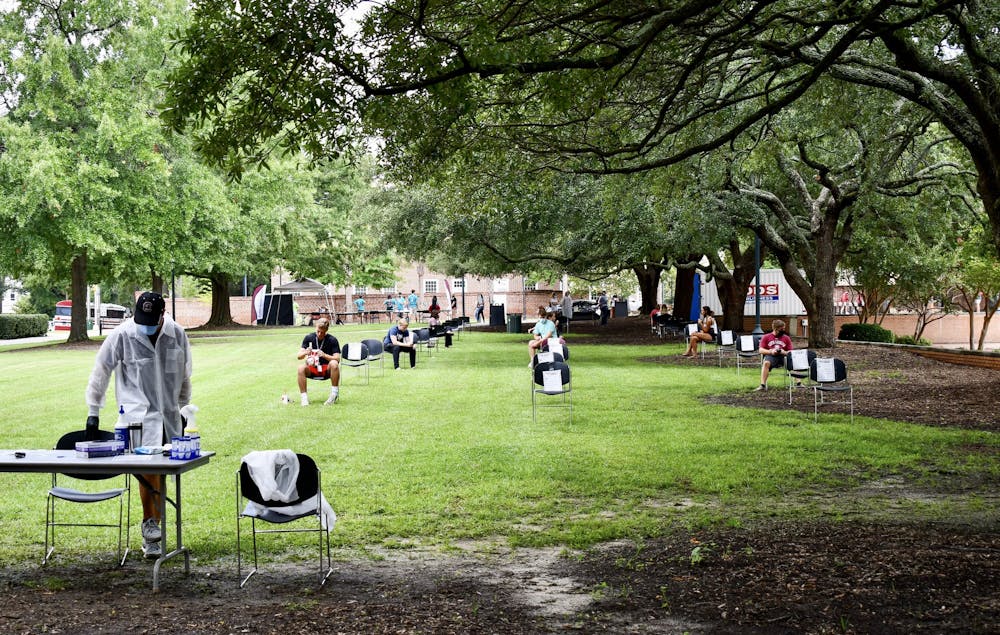Biweekly COVID-19 testing should be mandatory for both students and employees. Frequent testing on campus will help contain the spread, especially among those who might be asymptomatic.
We are officially in the flu season, and we can also expect a second coronavirus surge soon. According to The Washington Post, we should be aware of this “warning of a potential cold-weather surge of coronavirus cases — a long-feared 'second wave' of infections and deaths, possibly at a catastrophic scale.”
With the election coming up soon, a lot of people are likely traveling back to their hometowns to vote. They will come in contact with their families and friends and then come back to campus, where they might be attending classes in person or living with others who do.
This is what can happen if they are sick.
Not only would those individuals potentially be spreading the virus at home, but they would do so on campus too. Students and employees who stay in Columbia and do not travel may end up contracting the virus, whether it is from asymptomatic carriers who have traveled or simply by going out to restaurants and bars where their chances of coming across someone with COVID-19 are higher.
Although we cannot stop anyone from going out, we can put stricter measures in place to have more control over its spread.
Regardless of the choices students and employees make, our numbers will eventually spike, and we will not be able to contain it unless everyone gets tested. Getting tested in an appropriate amount of time before traveling home, and quarantining until your results are back, will help slow the spread in our community and your community back home. The same simple measures should be taken when returning to or staying in Columbia.
One way sports have been able to resume is by teams testing their players and coaches routinely.
“To wait until athletes have symptoms, depending on the sport, you’ll be falling behind," Jon Drezner, the team physician at the University of Washington, said in an article for Sports Illustrated.
Drezner said you will only have people spreading the virus if testing is spaced out, because “one of the time periods of highest risk to transmit the virus is the first 42 hours.”
With football season kicking off, the overcrowded gatherings will only continue to grow all over Columbia. If we are not on top of testing, we will fall behind and run the risk of asymptomatic individuals unknowingly getting others sick. Before we know it, our numbers will increase, and finding patient zero among everyone in the USC community will be difficult.
The State University of New York (SUNY) has put in place measures to have students attending its schools tested every two weeks. According to Teri Weaver, a public affairs reporter for syracuse.com, “the state’s college system can process as many as 100,000 tests a week.” They have 64 campuses and approximately 415,572 students in total.
Unlike USC, which tests individually, SUNY is doing pool testing. This method allows it to combine about 10 to 25 samples and test them as one. If this combined sample comes back positive, those who were in the group would have to get tested individually. This allows more students to get tested at a time and helps suppress the spread amongst asymptomatic carriers.
If USC adapted a pool testing method, they could start by testing in groups that consisted of those living together, whether in residence halls or apartments. This will increase the number of daily tests and ensure that everyone is tested.
If you want things to go back to normal, mandate frequent testing, or this will become our new normal for a very long time.

